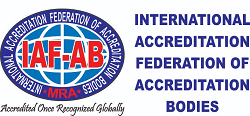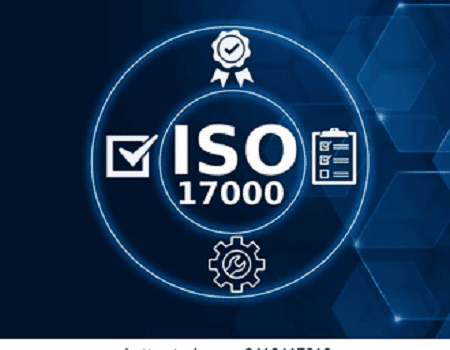The ISO/IEC 17000 series deals with standards for various aspects of conformity assessment. Specifically:
- ISO/IEC 17000 outlines general principles and definitions related to conformity assessment.
- ISO/IEC 17001 focuses on the requirements for bodies performing conformity assessment activities.
- ISO/IEC 17002 deals with the requirements for organizations performing conformity assessment activities.
- ISO/IEC 17003 covers the requirements for accreditation bodies that provide accreditation to organizations performing conformity assessment activities.
- ISO/IEC 17004 specifies requirements for accreditation bodies performing activities related to the accreditation of bodies.
These standards are crucial for ensuring the credibility and reliability of bodies involved in conformity assessment, including testing and calibration laboratories, certification bodies, and inspection bodies.
WHAT IS ISO/IEC 17000 SERIES ACCREDITATION OF APPROVED BODIES TECHNICAL SERVICES
The ISO/IEC 17000 series provides standards and guidelines for accreditation bodies that assess and accredit organizations performing conformity assessment activities. These standards ensure that the bodies involved are competent and operate according to recognized international norms.
Here’s a brief overview of key elements in the ISO/IEC 17000 series:
- ISO/IEC 17000: This standard provides the general principles and definitions related to conformity assessment. It serves as a foundation for other standards in the series.
- ISO/IEC 17001: It specifies requirements for the operation of conformity assessment bodies. This includes guidelines for the competence, impartiality, and consistency of these bodies.
- ISO/IEC 17002: This standard covers requirements for organizations that provide conformity assessment services. It focuses on ensuring these organizations meet certain quality and reliability standards.
- ISO/IEC 17003: It outlines the requirements for accreditation bodies that offer accreditation to organizations performing conformity assessment activities. It ensures these accreditation bodies are themselves competent and operate according to international standards.
- ISO/IEC 17004: This standard specifies requirements for accreditation bodies involved in accrediting other bodies that perform conformity assessment activities.
In summary, the ISO/IEC 17000 series ensures that the bodies responsible for assessing and accrediting other organizations are themselves competent, impartial, and reliable. This helps maintain the integrity and trustworthiness of the conformity assessment process.
WHO IS ISO/IEC 17000 SERIES ACCREDITATION OF APPROVED BODIES TECHNICAL SERVICES
The ISO/IEC 17000 series standards are developed and maintained by the International Organization for Standardization (ISO) and the International Electrotechnical Commission (IEC). These organizations work together to create and update international standards across various sectors, including conformity assessment.
The International Accreditation Forum (IAF) and the International Laboratory Accreditation Cooperation (ILAC) are key organizations involved in the application and enforcement of these standards. They help ensure that accreditation bodies around the world adhere to the ISO/IEC 17000 series standards, thereby maintaining the credibility and reliability of the conformity assessment process.
Accreditation bodies are organizations that evaluate and recognize other organizations (like testing laboratories, certification bodies, and inspection bodies) for their competence and adherence to relevant standards. These accreditation bodies themselves must meet the requirements of the ISO/IEC 17000 series to ensure their credibility and competence in assessing and accrediting others.
In summary:
- ISO and IEC develop and publish the standards.
- IAF and ILAC support the global implementation and recognition of these standards.
- Accreditation bodies are the entities that apply these standards to assess and accredit other organizations.
The ISO/IEC 17000 series consists of multiple standards related to the accreditation of bodies performing conformity assessment activities. Each standard in the series has its own development timeline and publication date. Here are some key dates and the status of the standards within the series:
- ISO/IEC 17000: The most recent version was published in 2004. It provides general principles and definitions related to conformity assessment.
- ISO/IEC 17001: This standard was withdrawn and is no longer in use. It was originally published in 2001.
- ISO/IEC 17002: This standard was withdrawn and is no longer in use. It was originally published in 2001.
- ISO/IEC 17003: This standard was published in 2005. It outlines requirements for accreditation bodies.
- ISO/IEC 17004: This standard was published in 2004. It specifies requirements for accreditation bodies involved in accrediting other bodies.
It’s important to check the most current versions and revisions of these standards on the ISO website or through the relevant accreditation organizations, as standards can be updated or replaced over time.
WHERE IS ISO/IEC 17000 SERIES ACCREDITATION OF APPROVED BODIES TECHNICAL SERVICES
The ISO/IEC 17000 series standards are available for purchase and access through several channels:
- ISO Website: The International Organization for Standardization (ISO) provides access to its standards on its official website. You can purchase copies or view them through the ISO Online Browsing Platform.
- National Standards Bodies: Many countries have their own national standards organizations that distribute ISO standards. For example, in the United States, you can obtain standards from the American National Standards Institute (ANSI), and in the UK, from the British Standards Institution (BSI).
- Accreditation Organizations: Bodies like the International Accreditation Forum (IAF) and the International Laboratory Accreditation Cooperation (ILAC) often provide resources and guidance related to the application of these standards.
- Local Libraries or Universities: Some academic or public libraries may have access to standards and can provide access or facilitate procurement.
These standards are essential for organizations involved in conformity assessment and are used globally to ensure consistent and reliable practices in various industries.
HOW IS ISO/IEC 17000 SERIES ACCREDITATION OF APPROVED BODIES TECHNICAL SERVICES
The ISO/IEC 17000 series establishes requirements and guidelines for bodies involved in conformity assessment activities. Here’s how it works:
- General Principles (ISO/IEC 17000): Provides foundational principles and definitions related to conformity assessment, helping to standardize terminology and understanding across different organizations and sectors.
- Accreditation of Conformity Assessment Bodies (ISO/IEC 17001, ISO/IEC 17002): While these specific standards have been withdrawn, their purpose was to define requirements for the operation and management of conformity assessment bodies. They set criteria for ensuring that these bodies are competent and impartial.
- Accreditation Bodies (ISO/IEC 17003): This standard specifies requirements for accreditation bodies that assess and accredit organizations performing conformity assessment activities. It ensures that accreditation bodies themselves are competent and adhere to international standards.
- General Requirements for Accreditation Bodies (ISO/IEC 17004): This standard specifies requirements for accreditation bodies involved in accrediting other bodies. It ensures consistency and quality in the accreditation process across different sectors and regions.
Key Aspects of the ISO/IEC 17000 Series:
- Competence: Ensures that organizations performing conformity assessments have the necessary skills, knowledge, and resources to carry out their tasks effectively.
- Impartiality: Requires that conformity assessment bodies operate without bias, ensuring fair and objective evaluations.
- Consistency: Aims to standardize procedures and practices across different accreditation bodies and sectors, promoting reliability and credibility.
- Transparency: Requires that procedures and criteria used in the accreditation process are clear and accessible, fostering trust and confidence.
Process:
- Application: An organization seeking accreditation applies to an accreditation body that operates under the ISO/IEC 17000 series standards.
- Assessment: The accreditation body evaluates the organization’s compliance with relevant standards, checking for competence, impartiality, and adherence to procedures.
- Accreditation: If the organization meets the requirements, the accreditation body grants accreditation, which signifies that the organization is competent to perform conformity assessments.
- Monitoring: The accreditation body continuously monitors the accredited organization to ensure ongoing compliance and competence.
- Reassessment: Periodic reassessments are conducted to verify that the organization continues to meet the required standards.
By following these standards, organizations involved in conformity assessment can ensure that their operations are consistent, reliable, and recognized internationally.
CASE STUDY ISO/IEC 17000 SERIES ACCREDITATION OF APPROVED BODIES TECHNICAL SERVICES
A case study involving the ISO/IEC 17000 series for accreditation of approved bodies can illustrate how these standards are applied in real-world scenarios. Here’s an example:
Case Study: Accreditation of a Certification Body for ISO 9001
Background
Company X is a certification body specializing in the certification of quality management systems to the ISO 9001 standard. To enhance its credibility and ensure consistent practices, Company X seeks accreditation from an internationally recognized accreditation body.
Objective
To obtain accreditation for Company X under the ISO/IEC 17000 series, ensuring that its certification processes are competent, impartial, and reliable.
Process
- Application and Documentation
- Company X submits an application to an accreditation body (Accreditation Body A) that operates under the ISO/IEC 17000 series standards.
- It provides comprehensive documentation outlining its quality management processes, personnel qualifications, and procedures for conducting audits and issuing certifications.
- Initial Assessment
- Accreditation Body A reviews the documentation to ensure that Company X’s practices align with the requirements of ISO/IEC 17011 (which specifies the requirements for accreditation bodies) and other relevant ISO/IEC 17000 series standards.
- The initial assessment includes an evaluation of the company’s competence, impartiality, and adherence to standardized procedures.
- On-Site Evaluation
- Accreditation Body A conducts an on-site assessment of Company X’s facilities, operations, and personnel.
- Assessors observe the certification process, review audit reports, and interview staff to verify that Company X meets the necessary standards and operates without bias.
- Review and Decision
- Based on the assessment findings, Accreditation Body A prepares a report highlighting any areas of non-compliance or improvement.
- Company X addresses these issues and submits corrective actions.
- Accreditation Body A reviews the corrective actions and, if satisfied, grants accreditation to Company X.
- Ongoing Monitoring
- Accreditation Body A conducts periodic surveillance audits to ensure that Company X continues to meet the accreditation requirements.
- Regular assessments and reviews are performed to maintain the integrity of the certification process and ensure ongoing compliance.
- Reassessment
- After a defined period, Accreditation Body A performs a comprehensive reassessment of Company X to confirm that it remains compliant with ISO/IEC 17000 series standards and other relevant requirements.
Results
- Company X successfully achieves accreditation, which enhances its credibility and ensures that its certification processes are internationally recognized.
- The accreditation helps Company X attract more clients and provides assurance to its clients that its certifications are conducted with high standards of competence and impartiality.
Lessons Learned
- Adhering to the ISO/IEC 17000 series standards provides a structured framework for ensuring the reliability and consistency of conformity assessment processes.
- Regular monitoring and reassessment are crucial for maintaining accreditation and ensuring continuous improvement.
This case study illustrates the practical application of the ISO/IEC 17000 series in accrediting a certification body, highlighting the importance of competence, impartiality, and standardized procedures in the accreditation process.


